Wolfgang Rihm Day, Barbican
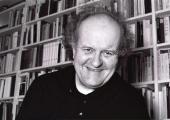

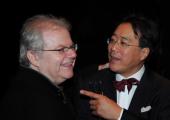
In every partnership there is a leader, and it’s not always the featured name. While the hall was packed with Ma followers for this rare cello-and-piano recital, what emerged was a richly sensitising foretaste of what the Emanuel Ax residency is going to offer over the next fortnight. This is one marvellous pianist.

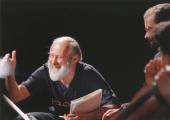
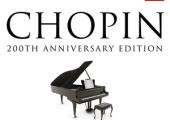
Heading up this month's classical selection is a 16-CD budget box set of the complete works of Frédéric Chopin, issued to celebrate the 200th anniversary of the consumptive Pole's birth. Plus we review a rare piano concerto by Ralph Vaughan Williams, a disc of even rarer string orchestra works by the post-war Polish composer Grażyna Bacewicz, a fresh coupling of the Debussy and Ravel string quartets, a new version of Bruckner's mighty Eighth from the French-Canadian wunderkind Yannick Nézet-Séguin and two sets of historic recordings conducted by "Glorious John" Barbirolli.

Tim Lawrence is an author and academic, whose musical studies have led him from the dance scene of the 1990s to researching New York's disco scene – his Love Saves the Day was the first and remains the definitive history of the music, history and politics of disco – and then to the singular figure of Arthur Russell.
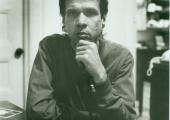
Linked to Joe Muggs' interview with Tim Lawrence on theartsdesk, this is extracted from the introduction of Hold On To Your Dreams: Arthur Russell and the Downtown Music Scene, 1973-1992.
Arthur Russell hailed from the Midwest, yet felt at home in downtown New York. Outwardly normal to those who observed his checkered shirt and acne-scarred face, he trod the maze-like streets that ran from the battered tenements of the East Village to the abandoned piers on the West Side Highway for hours at a time, and on a daily basis.
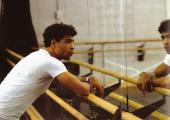
It‘s when you see how popstar fame can reach people with more luck than work that Carlos Acosta’s achievement in becoming a truly popular ballet star is underlined. Ballet is just the toughest discipline there is. Great elite artists and great popular artists are generally divided by an insuperable wall; often there’s a sell-out of some kind when the great elite artist achieves wider popularity, the dancer gets cocky or vulgar or goes on too long. But I have to exempt Acosta from that.
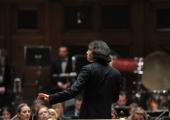
Eliot's "time future contained in time past" has been conductor Vladimir Jurowski's unofficial motto throughout a festival which has had to take itself very seriously, and managed miraculously to carry a surprisingly large, loyal audience of all ages and persuasions along with it. Such stringent conditions could hardly be otherwise given the focal point of an uncompromising genius.